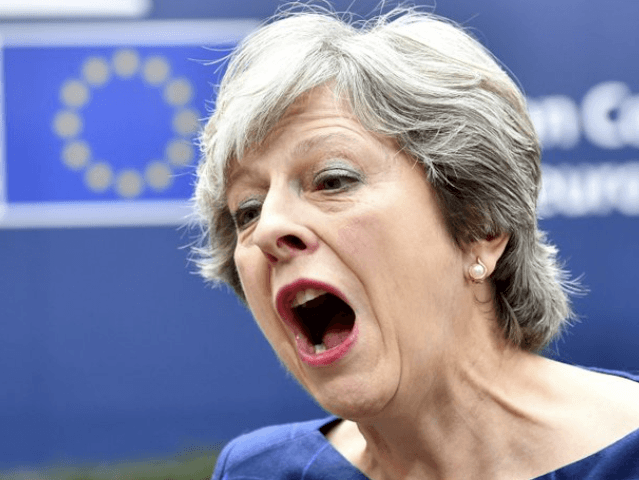BRUSSELS (AP) — British Prime Minister Theresa May arrived at a European Union summit Thursday with a call for urgency and a pledge to treat EU residents well once Britain leaves the bloc — the latest attempt to reinvigorate the divorce negotiations.
At EU headquarters in Brussels, May faces 27 EU counterparts who have been blocking her goal of quickly wrapping up the first phase of Brexit talks. With less than 18 months to go until Britain leaves the bloc, the negotiations so far have become stuck on the terms of its departure.
May initially hoped that post-divorce issues such as future trade relations could be on the table starting next week.
But the talks launched earlier this year have stalled over several issues, including the future status of the 3 million EU citizens living in Britain and the 1 million Britons living elsewhere in the bloc. Some of those concerned about what Brexit will mean for them have accused politicians of using them as pawns in the deal-making.
“I particularly, for example, want to see an urgency in reaching an agreement on citizens’ rights,” May said as she arrived for the summit.
May said in an open letter to EU nationals published late Wednesday that Britain and the EU are in “touching distance” on a deal on citizens’ rights deal.
“EU citizens who have made their lives in the U.K. have made a huge contribution to our country,” May wrote. “We want them and their families to stay. I couldn’t be clearer.”
May said a “streamlined digital process” partly overseen by European nationals would be created for EU citizens to register as U.K. residents.
The 3 Million, a lobby group for EU nationals in Britain, said many issues remained unresolved, including whether people will be able to bring their families to live with them in the U.K.
The group’s co-founder, Nicolas Hatton, said “the government can do better than this letter.”
EU leaders such as European Council President Donald Tusk have been waiting, with increasing impatience, for the British government to provide details of its offer on citizens’ rights and other issues.
The EU insists there can be no talks on trade and other future relations with Britain until there has been “sufficient progress” on divorce terms: citizens’ rights, a transparent Irish border and Britain’s exit tab.
May and EU Commission President Jean-Claude Juncker committed to “accelerate” the talks this week, but there’s little sign of the logjam breaking.
Tusk said “I don’t expect any kind of breakthrough” at this week’s summit.
British officials now hope the go-ahead for phase two of negotiations will come at a summit in December.
Tusk said he was “absolutely sure it is still possible to achieve this final first phase in December but for this we need more concrete proposals from the British side, to be honest.”
One main obstacle is money: the bill Britain needs to pay for commitments it made as an EU member. Britain has floated a payment of around 20 billion euros ($23.6 billion.) The starting price for the rest of EU is 50 billion euros ($60 billion.)
Asked whether 20 billion euros was “peanuts” compared to what Britain owes, Tusk said, “I have never seen 20 billion peanuts in my life.”
The lack of progress in negotiations has emboldened British euroskeptics, who want a clean break with the EU. Several urged May on Thursday to walk away from divorce talks unless the bloc starts discussing trade.
A group of lawmakers and peers including former Treasury chief Nigel Lawson and ex-Environment Secretary Owen Paterson said that if there is no breakthrough this week May should declare unilaterally that Britain will leave the bloc without a deal in March 2019 and revert to World Trade Organization trade rules.
That would mean tariffs on goods going back and forth, and many British businesses fear it would have a devastating effect.
While the June 2016 referendum that called for Britain to pull out of the EU has created political chaos in London, the other EU nations have recovered from the initial shock and stood side by side throughout the negotiations.
EU officials say the negotiations need to conclude by November 2018 at the latest to finish off the complicated approval process by March 29, 2019, when Britain is due to leave.

COMMENTS
Please let us know if you're having issues with commenting.